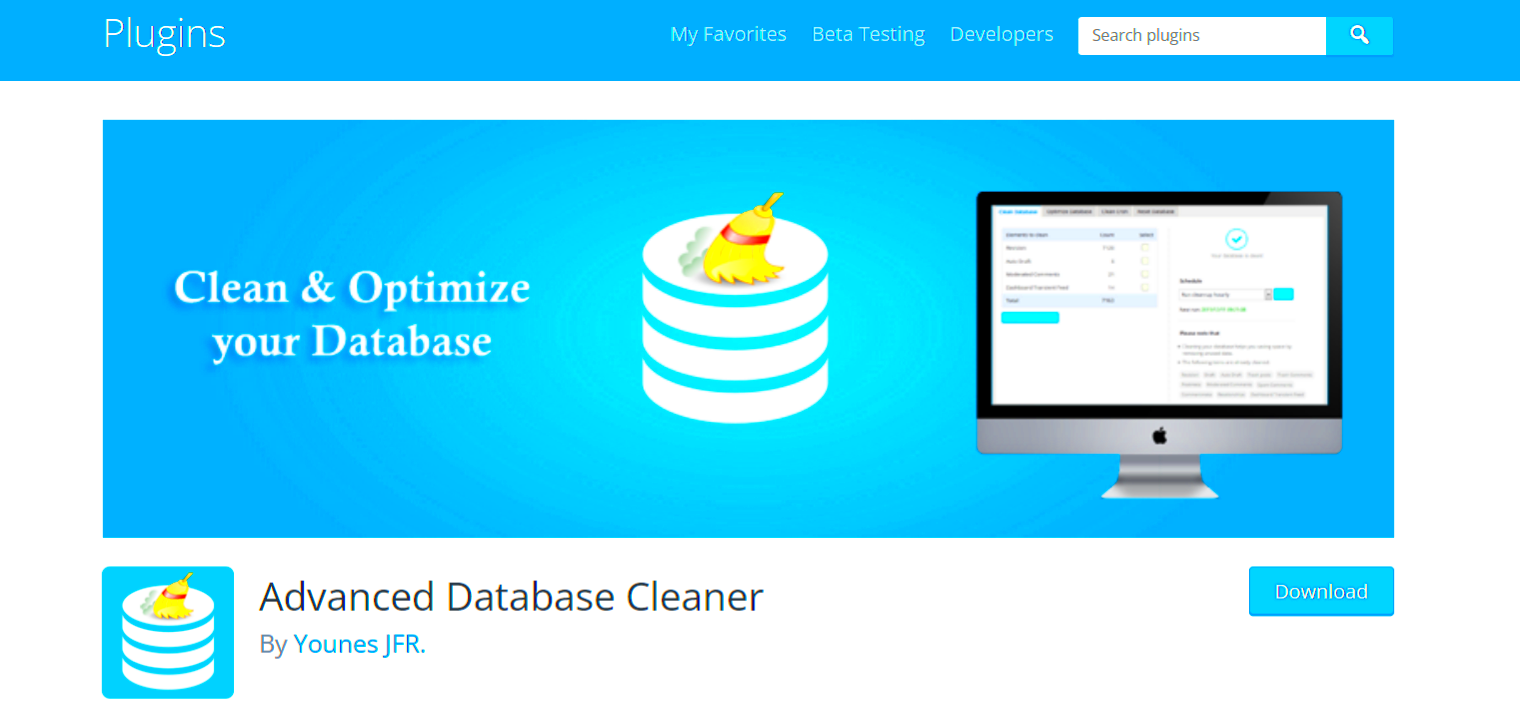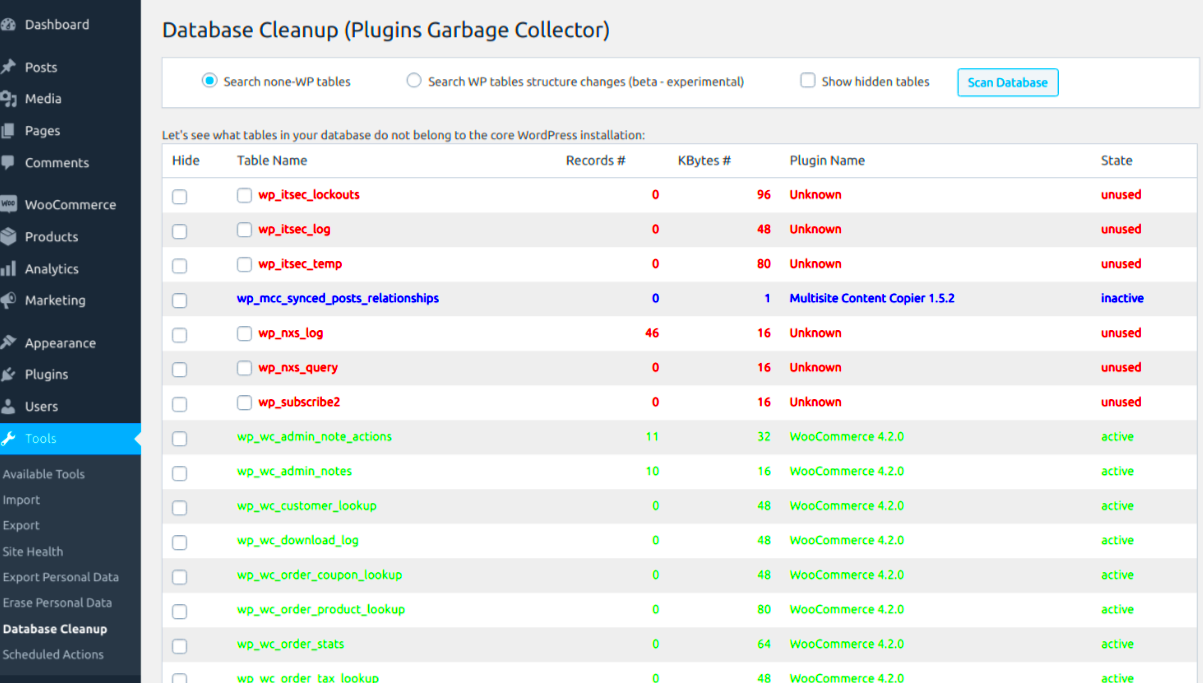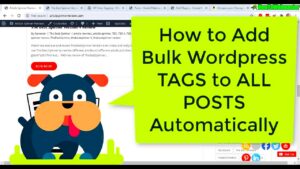Have you ever wondered why your WordPress site seems to lag behind, despite your best efforts? Well, the culprit might just be lurking within your database. In this post, we’re diving into the world of WordPress database cleaners and optimizers. These tools can help declutter your database, improve site performance, and ultimately enhance user experience. Whether you’re a seasoned developer or a casual blogger, keeping your database clean is essential. Let’s explore why a clean database matters and how you can achieve one efficiently!
Understanding the Importance of a Clean Database

Your WordPress database is like the engine of your site—powerful yet prone to accumulating junk over time. Every comment, post, and plugin leaves behind traces that can slow you down. Here are some key reasons why maintaining a clean database is crucial:
- Improved Performance: A cluttered database leads to slower load times. Removing unnecessary data can significantly enhance your site’s speed, which is crucial for user satisfaction and SEO.
- Enhanced Security: Old and unused data left in your database can be a security risk. Regular cleaning minimizes the risk of data breaches and vulnerabilities.
- Better User Experience: A faster site creates a better user experience. Visitors are likely to leave if your pages take too long to load, impacting your traffic and conversions.
- Efficient Backups: A smaller, cleaner database means quicker backups. This can save you time and storage space, making recovery easier in case of any mishaps.
So, how can you keep your database in tip-top shape? That’s where database cleaner and optimizer tools come into play. They simplify the cleaning process, making database maintenance a breeze!
Top Features to Look for in Database Cleaner and Optimizer Tools

When you’re on the hunt for the perfect WordPress database cleaner and optimizer tool, it’s essential to ensure that it comes equipped with the right features. Here are some top features that can make a significant difference:
- User-Friendly Interface: The tool should have an intuitive interface that allows even the least tech-savvy individuals to navigate it easily. A clean layout with clear instructions is a must!
- Automatic Cleanup Scheduling: Look for tools that allow you to set up automatic cleanup schedules. This means you can forget about manual maintenance and let the tool do the work for you at regular intervals.
- Bulk Optimization Options: Having the ability to optimize multiple tables or entries at once can save you a ton of time. Bulk actions are especially handy when you’re managing large databases.
- Comprehensive Backup Systems: Before any optimization, your data is sacred! A good database cleaner should ensure you can back up your database easily. Some even offer restore points before changes are made.
- Selective Cleaning Options: Not all data is junk. A high-quality tool should let you choose what to clean (like post revisions, spam comments, transients) so you can keep what’s necessary while optimizing the rest.
- Performance Reports: After cleaning, you should have access to reports showing how much space you’ve saved and how performance has improved. This transparency is key for understanding the efficiency of the tool.
With these features in mind, you can make an informed decision and choose a tool that best fits your WordPress site’s needs!
Best WordPress Database Cleaner Tools

Now that you know what to look for, let’s dive into some of the best WordPress database cleaner tools available:
| Tool Name | Key Features | Pricing |
|---|---|---|
| WP-Optimize | Automatic cleaning, database optimization, image compression | Free; Premium starts at $39 per year |
| Advanced Database Cleaner | Schedules cleanups, selective deletions, backup options | Free; Pro version at $39 |
| WP-Sweep | Cleanup for post revisions, unapproved comments, orphaned metadata | Free |
| MySQLDumper | Backup management, scheduled backups, multilingual support | Free |
| Optimize Database after Deleting Revisions | Schedule optimization, database revision cleanup, easy installation | Free |
Each of these tools has its unique strengths and weaknesses.” Depending on your requirements—whether it’s simplicity, advanced features, or price—there is an ideal tool waiting for you. Give them a try, and see how they can revolutionize your database management!
Best WordPress Database Optimizer Tools
When it comes to keeping your WordPress site running smoothly, database optimization is crucial. Over time, databases accumulate unnecessary data, which can slow down your website. Fortunately, there are several fantastic WordPress database optimizer tools you can use to tidy things up. Here’s a list of some of the best options on the market:
- WP-Optimize: This is a free and user-friendly tool that allows for database clean-up, caching, and image compression. It removes post revisions, spam comments, and unused tags, significantly optimizing your database.
- Advanced Database Cleaner: With both free and premium versions, this plugin allows you to schedule database cleanups, clear orphaned items, and optimize tables. Perfect for those looking for a comprehensive solution!
- WP-Sweep: Another free option that cleans up various aspects of your database, including revisions, auto drafts, and transient options. It’s straightforward and effective, making it a fan favorite!
- Optimize Database after Deleting Revisions: This tool focuses specifically on cleaning up post revisions, ensuring that your database remains lightweight and efficient.
- Database Cleaner: A simple yet powerful plugin that can track databases and identify potentially unnecessary data, helping to enhance performance over time.
These.tools offer various features and functionalities tailored to both beginners and advanced users. Depending on your specific needs, one of these database optimizer tools can be a game-changer for your WordPress site’s performance.
Comparative Analysis of the Leading Tools
In the realm of WordPress database optimization, each tool has its strengths and unique features. Let’s compare a few of the leading tools based on factors like functionality, ease of use, and pricing:
| Tool | Functionality | Ease of Use | Pricing |
|---|---|---|---|
| WP-Optimize | Database cleaning, caching, image compression | Very user-friendly | Free; premium version available |
| Advanced Database Cleaner | Scheduled cleanups, orphaned item cleanup | Intuitive interface | Free; premium options available |
| WP-Sweep | Comprehensive database cleaning | Simple to navigate | Free |
| Optimize Database after Deleting Revisions | Focus on post revisions | Straightforward setup | Free |
| Database Cleaner | Tracks and identifies unnecessary data | User-friendly | Free |
By evaluating these factors, you can determine which tool aligns best with your website management style. If you prefer a robust all-in-one solution, WP-Optimize might be your go-to. On the other hand, if you’re looking for something more tailored, Advanced Database Cleaner could suit your needs perfectly.
How to Choose the Right Tool for Your Needs
Choosing the right WordPress database cleaner and optimizer tool can feel like a daunting task, especially with so many options out there. But don’t worry! Let’s break it down together.
First, you need to assess your specific needs. Are you looking for a simple tool to occasionally clean up your database, or do you require a more robust solution that offers regular maintenance and monitoring? Here are some important factors to consider:
- User-Friendliness: Look for tools that have an intuitive interface. If you’re not tech-savvy, a complex program might confuse you.
- Features: Determine which features are essential for your tasks. Do you need scheduled backups, advanced cleaning options, or performance analytics?
- Compatibility: Ensure that the tool is compatible with your version of WordPress and any plugins you currently use.
- Support and Documentation: A tool with excellent customer support and thorough documentation will save you time and headaches in the long run.
- Ratings and Reviews: Check user reviews online. They can provide insight into real-world performance and possible issues.
Lastly, before committing, testing a few different options using free trials or demos can help you make the right choice without spending a dime. Finding the right database cleaner can lead to improved performance for your WordPress site, so it’s worth taking your time to decide!
Best Practices for Database Maintenance
Maintaining your WordPress database is crucial for ensuring your site runs smoothly and efficiently. Here are some best practices that you should consider to keep your database in top shape:
| Practice | Description |
|---|---|
| Regular Backups | Always back up your database before making any changes. This ensures you can restore your data if something goes wrong. |
| Schedule Cleanings | Set a regular schedule (monthly or quarterly) to perform database cleanups to prevent bloat and degradation. |
| Optimize Tables | Use optimization features to defragment database tables and improve query performance. |
| Remove Unused Data | Regularly delete spam comments, post revisions, and unused plugins/themes to free up space and enhance performance. |
| Monitor Performance | Keep an eye on your website’s performance metrics to identify and address database issues promptly. |
Incorporating these best practices into your WordPress routine will not only help maintain your database but will also improve the overall performance of your site. Remember, a well-maintained database is key to a smooth user experience!
Conclusion
Choosing the right WordPress database cleaner and optimizer tools is essential for maintaining a well-functioning website. By regularly cleaning and optimizing your database, you can enhance your site’s performance, speed up load times, and improve user experience. Here are some top recommendations to consider:
- WP-Optimize: A widely-used plugin that allows you to clean up the database, compress images, and cache your site for improved performance.
- Advanced Database Cleaner: Focused on database housekeeping, this tool lets you delete old revisions, spam comments, and unused data.
- WP-Sweep: Utilizes WordPress’s internal functions to clean and optimize the database. It can remove orphaned meta-data and transients effectively.
- Optimize Database after Deleting Revisions: This plugin automatically removes post revisions and cleans up the database without compromising the integrity of your data.
- DB Cache Reloaded Fix: A caching optimization tool that enhances the load time of your database queries to improve site performance.
When selecting a database cleaner and optimizer, consider your specific needs and the features offered by each tool. Many of these plugins come with user-friendly interfaces and offer features such as scheduled optimizations and backup options. Ultimately, keeping your WordPress database tidy is a proactive step that can prevent issues down the line and ensure that your website runs smoothly.



